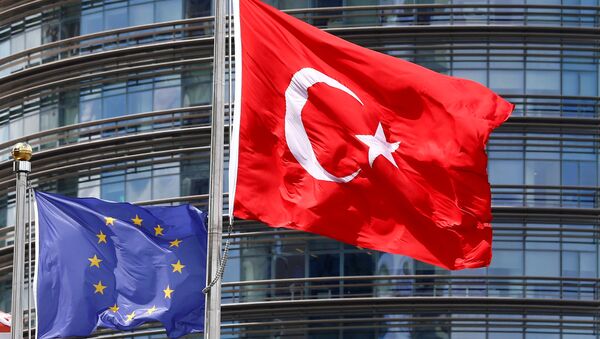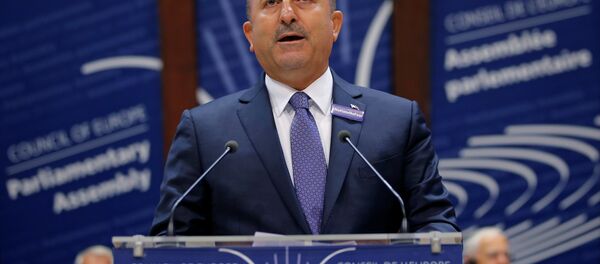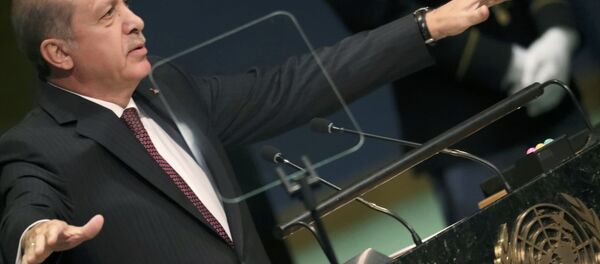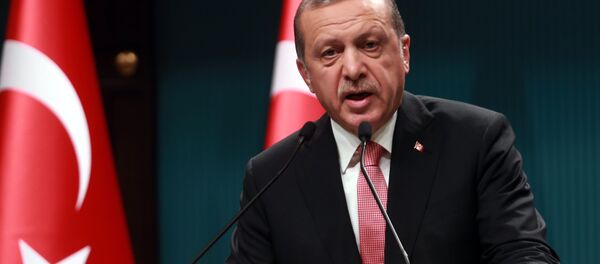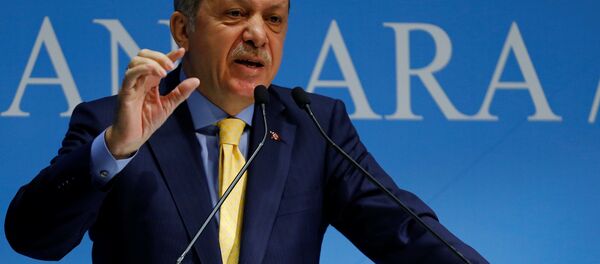"Brexit can spread, such voices are heard from France and Italy. Under these circumstances, Turkey should feel calm. One should not say that the European Union is the only option. Why can’t Turkey become a member of the SCO?" Erdogan told journalists on the flight back after his official visit to Uzbekistan.
Joining the SCO would be a "positive step" for Ankara because its accession to the European Union has long been delayed, said Fevzi Sanverdi, a Turkish lawmaker from the ruling Justice and Development Party (AKP).
Turkey signed an association agreement with the then-European Community in 1963, and submitted a membership application in 1987. Talks about Ankara's membership in the EU began in 2005.
"We’ve been standing at the door to the European Union for over 50 years. But the period of uncertainty cannot last for 60 years. Europe should make the final decision. If Turkey became an SCO member it would give more freedom within this bloc. So, I believe that Turkey’s accession to the SCO would a very positive step," Sanverdi told Sputnik Turkiye.
"On what side will the EU be – on the side of the terrorists threating the Turkish state or on the side of Turkey which is an important NATO ally? They should decide by the end of the year," he said.
Brussels outlined 72 criteria that Turkey must meet before becoming a member of the EU.
According to Sanverdi, Ankara has fulfilled 71 criteria, except for one concerning the amendments to the country’s counterterrorism law, which are considered to be too harsh by the EU authorities.
Co-chair of the Center for Turkish and Russian Studies (TURAM) Aydın Sezer said that in comparison with the EU, the SCO gives its members more freedom in making sovereign decisions.
"Brussels demands that country members and candidates make certain changes to their political structure and make steps alongside Europe in the name of the European values and the Western civilization. This leads to a structural transformation. The EU can be described as a private club with very strict membership rules. One of these rules is to comply with the designated principles," Sezer pointed out.
According to him, the SCO is different because its country members preserve their sovereignty within the organization.
"I’m not saying that EU member and candidates completely lose their rights and sovereignty. But they have to act according to Western values and principles, thus losing the possibility to make a sovereign decision on certain points," he explained.
Sezer suggested that Turkey’s membership in the SCO could be possible only if Ankara minimized its partnership ties with the West.
"One should keep in mind that Turkey technically cannot maintain ties with the EU, NATO and the SCO at the same time. An attempt to establish partnership with two blocs at the same time would be a very difficult process for Ankara," he said.
"Turkey has been a NATO member since 1952. This complicates the picture because the SCO actually came into existence mainly as a geopolitical response to NATO rather than the EU. In this regard I don't think that under the current circumstances Russia and China would be willing to accept Turkey as a full SCO member unless Ankara freezes its current links with NATO," Ersen told Radio Sputnik.
Ersen added that one of the main reasons behind Ankara’s willingness to join the SCO as a full-fledged member is the fact that Turkey "wants to follow a more independent path in its foreign policy."
In turn, political analyst and commentator Baris Doster said in an interview with Sputnik Turkiye that Erdogan’s statements on the SCO is rather a game aimed to influence the Turkish public.
According to the expert, during the past five-six years, in the event of souring ties with the West, the Turkish government has repeatedly brought up the issue of joining the SCO.
"People in Turkey as well as other world leaders are already used to the fact that Erdogan regularly makes statements on Turkey joining the SCO. Usually, this happens when tensions arise between Ankara and the EU. However, no concrete steps has been made by the government," Doster pointed out.
He added that even Turkey decided to withdraw from NATO it would take at least 25 years to minimize the influence of the alliance on Turkey’s politics, military, economy and culture.
"I don’t think Erdogan’s statements should be regarded as an official intention of the government. Is Turkey ready to stop using the dollar and euro which play a very important role in its economy? I don’t think so. Such statements are aimed to form a certain public opinion, but don’t reflect the official position of the government," Doster concluded.

